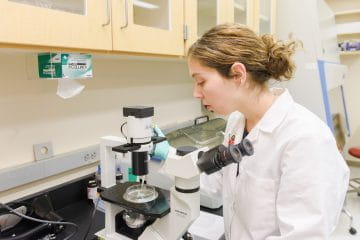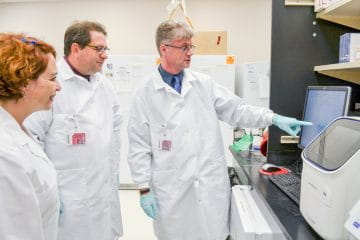Named a Center of Excellence in Molecular Hematology by the National Institutes of Health (NIH), the Wells Center is one of only three such centers in the United States. Research at the Wells Center is at the forefront of molecular biology and genetics. Through the development of innovative approaches to diagnosis, the center continues to be a strong pillar for IU School of Medicine, providing outstanding training and increasing knowledge of the causes and mechanisms of serious pediatric diseases.
Wells Center researchers receive more than $28 million annually in federal research funds, along with grants from the American Cancer Society, the American Heart Association, the March of Dimes and many other private foundations.
Eleven programs constitute the working groups within the center: asthma and allergic diseases; diabetes; cardiovascular genetics; developmental cardiology; hematologic malignancies and stem cell biology; infectious diseases and global health; molecular oncology and experimental therapeutics; gene and cell therapy; kidney and urology; pediatric translational research; and nutrition and molecular metabolism.


